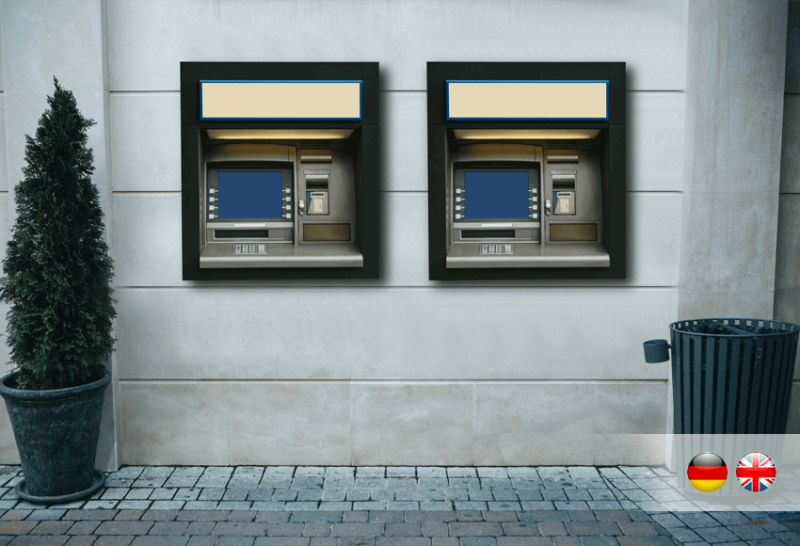In my blog entry last year, I took a general look at the VAT exemption of so-called white label structures, and in particular at a case that came before the German Federal Fiscal Court (BFH) concerning potentially VAT-exempt services surrounding the operation of cash machines by a company and a bank. The case concerned the VAT exemption of the services provided by the company to the bank. The service provided by the bank to end customers was not the subject of the case.
The BFH put the question before the Court of Justice of the European Union (CJEU) (case Cardpoint GmbH as the legal successor of Moneybox Deutschland GmbH; case C-42/18). The Advocate General provided his Opinion on 2 May 2019 (LINK). The Opinion serves to prepare the oral proceedings and is not binding on the judges of the CJEU. However, in the vast majority of cases the judges of the CJEU follow the Advocate General’s Opinion. So what can we expect from the CJEU with regard to the possible VAT exemption of outsourced services in respect of the operation of cash machines (white label structure)?
The Opinion of the Advocate General of the CJEU on cash machines & VAT: outsourcing the operation of cash machines is not exempt from VAT
In the case under discussion, one company (Moneybox Deutschland GmbH) operated cash machines together with a bank. According to the Opinion of the Advocate General of the CJEU, the services provided by the company to the bank are not exempt from VAT in the context of payment and transfer transactions (Article 135(1)(d) of Council Directive 2006/112/EC of 28 November 2006 on the common system of value added tax, OJ 2006 L 347, p. 1, VAT Directive; Section 4 para. 8 German VAT Act (UStG)).
Cash machines & VAT – what to expect
In his Opinion, the Advocate General points out that the company performs activities which are ‘indispensable’ for the payment of the money. However, taking into account the case law of the Court of Justice of the European Union on the outsourcing of individual activities which are in themselves exempt from VAT, the company here does not assume any responsibility with regard to the legal and financial changes required for the exemption from VAT within the scope of the payment transaction.
According to the Advocate General’s Opinion, the services provided by the company to the bank in connection with the operation of cash machines should therefore not be exempt from VAT. It remains to be seen how the judges of the CJEU will decide on this matter.
Will the expected CJEU ruling apply to all white label structures?
A key feature of a so-called white label structure in the area of financial services provided by banks and payment institutions is that the service to be provided externally to the customer must be provided by a payment institution or a bank regulated by supervisory law. This objective of a white label structure can be implemented with various legal structures, e.g. brokerage, commission (see also https://paytechlaw.com/entscheidung-zur-umsatzsteuerfreiheit-von-white-label-strukturen-vertagt/). This therefore begs the question if the expected ruling of the CJEU will be applicable to all legal white label structures.
The answer is no. If, for example, a taxable person renders a VAT exempted service in its own name but on behalf of another taxable person (service commission), it is possible – due to the special design of the statutory rule as a fiction (Section 3 para. 11 UStG) – that, irrespective of the above-mentioned requirements placed by case law on the assumptions of VAT-exempt outsourced services, the service provided by the company to the bank is exempt from VAT.
A service commission exists if a company, e.g. a bank, is involved in the provision of a service and acts in its own name but on behalf of a third party (S. 3 para. 11 UStG). In practice, there may well be cases in which banks or payment institutions no longer wish to perform certain activities themselves, e.g. the cash machine business. If a third-party company takes over all activities and economic risks from this business, with the exception of those activities which have to be provided by a bank or a payment institution under applicable supervisory law, these circumstances indicate the existence of a service commission. The fact that for supervisory law reasons the company may not externally operate the cash machine, for example, does not preclude the assumption of a service commission.
The Advocate General’s Opinion does not directly examine whether the conditions for a so-called outsourcing within the meaning of the case law of the Court of Justice of the European Union or a service commission are met (S. 3 para. 11 UStG; Art. 28 VAT Directive). It is possible that the facts underlying the legal dispute or the contractual structure did not give rise to this.
The above considerations show that the differentiation between outsourcing and a service commission can be very important for the question of the provision of a VAT-exempt service.
For this reason, the VAT effects should be kept in mind when designing a white label structure from a legal perspective.
Cover picture: Copyright © fotolia / franz12




